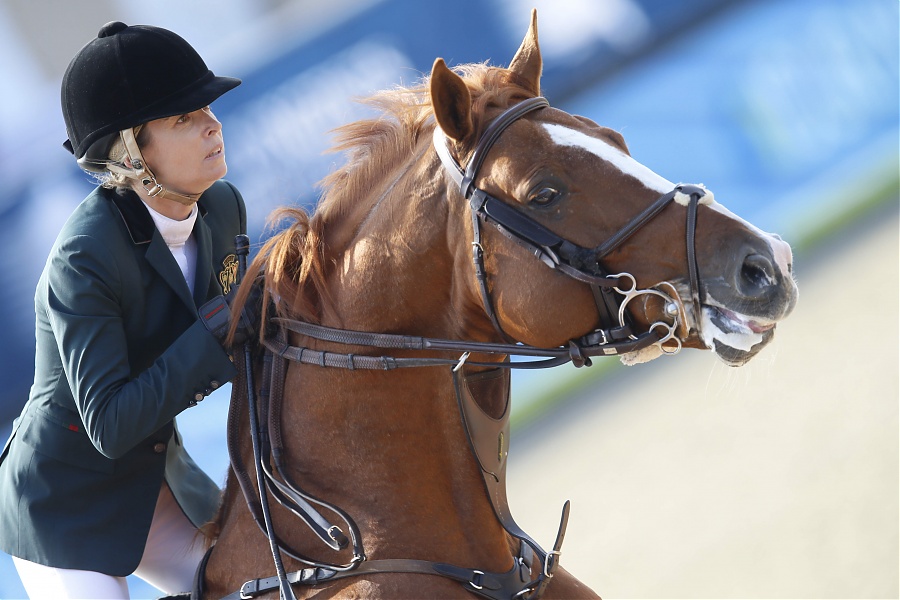Equestrian Australia (EA) has a responsibility to its members, horses, event organising committees and venues to take reasonable steps to protect equine and human health. It is with this in mind that the EA national board has adopted a new by-law outlining the Hendra vaccination requirements for horses which attend EA and FEI sanctioned events in Australia. The EA Hendra Vaccination By-Law comes into effect from today, Tuesday 1 July, however implementation will occur from 1 October 2014 to allow event organisers and owners/riders an opportunity to comply with the by-law’s requirements. There is also an additional one month grace period for any event taking place during the month of October which already has its schedule published. The by-law makes it a requirement for organising committees of EA and FEI events to complete a questionnaire during initial planning stages to determine if their event requires classification as a Hendra Vaccinated Event (HVE). Known as the Equestrian Competition Hendra Biosecurity Checklist, the assessment requires event organisers to answer a series of multiple choice questions about the location and duration of the event, the number of horses in attendance, how the horses will be stabled and the impact on the facilities should a Hendra outbreak occur. If the result of the checklist is equal to 50 or above then event organisers will need to classify their event as a HVE. There will be one checklist used by all event organisers regardless of the state in which their event is held however the location of the event will determine if all or only some of the attending horses require vaccination. The by-law divides the country into two regions – endemic and non-endemic – with different requirements for each. Events graded as a HVE within the states of New South Wales and Queensland, which the by-law defines as the endemic region, will require all attending horses to be Hendra Vaccinated. Events that carry a HVE classification within the states of Victoria, South Australia, Western Australia, Tasmania and the territories of NT and ACT, which the by-law defines as the non-endemic region, will only require horses travelling from the endemic region (NSW and QLD) to be Hendra vaccinated. Equestrian Australia CEO, Grant Baldock said the by-law offered a practical approach to mitigating the risk of a Hendra incident at an EA event. “To date, Hendra incidents have only occurred within the states of New South Wales and Queensland. While this does not mean that a Hendra incident could not occur in another state in the future, the likelihood of a Hendra incident occurring at an EA event is higher in New South Wales and Queensland. “For this reason all horses attending a HVE within NSW or Qld, regardless of their origin will require Hendra Vaccination. “If your horse resides in another state and you don’t travel to NSW or Qld for a HVE event then your horse will not require Hendra vaccination. Only horses which leave these states and attend a NSW or QLD HVE will require vaccination.” Mr Baldock said a range of resources had been developed to assist event organisers and riders/owners understand the Hendra Vaccination By-Law and checklist. “As well as providing a three month grace period to give event organisers and riders a chance to understand and comply with the by-law’s requirements, a series of factsheets has been developed to help answer common questions and guide event organisers through the process of completing the checklist. “It is important to note the by-law places the majority of onus and responsibility on horse owners and riders to ensure they are complying. All riders are encouraged to check the HVE status and entry requirements of events they are attending from 1 October and all members are encouraged to familiarise themselves with the Hendra Vaccination By-Law. “The national board has indicated that a review of the checklist will occur within three months and the by-law will be reviewed as required. It is important that there is flexibility to update the by-law and checklist as new information comes to hand,” he said. For more information on the Hendra Vaccination By-Law and the Equestrian Competition Hendra Biosecurity Checklist please visit the dedicated page on the EA website.
Equestrian Australia releases Hendra Vaccination By-Law
-
categories: Australia



